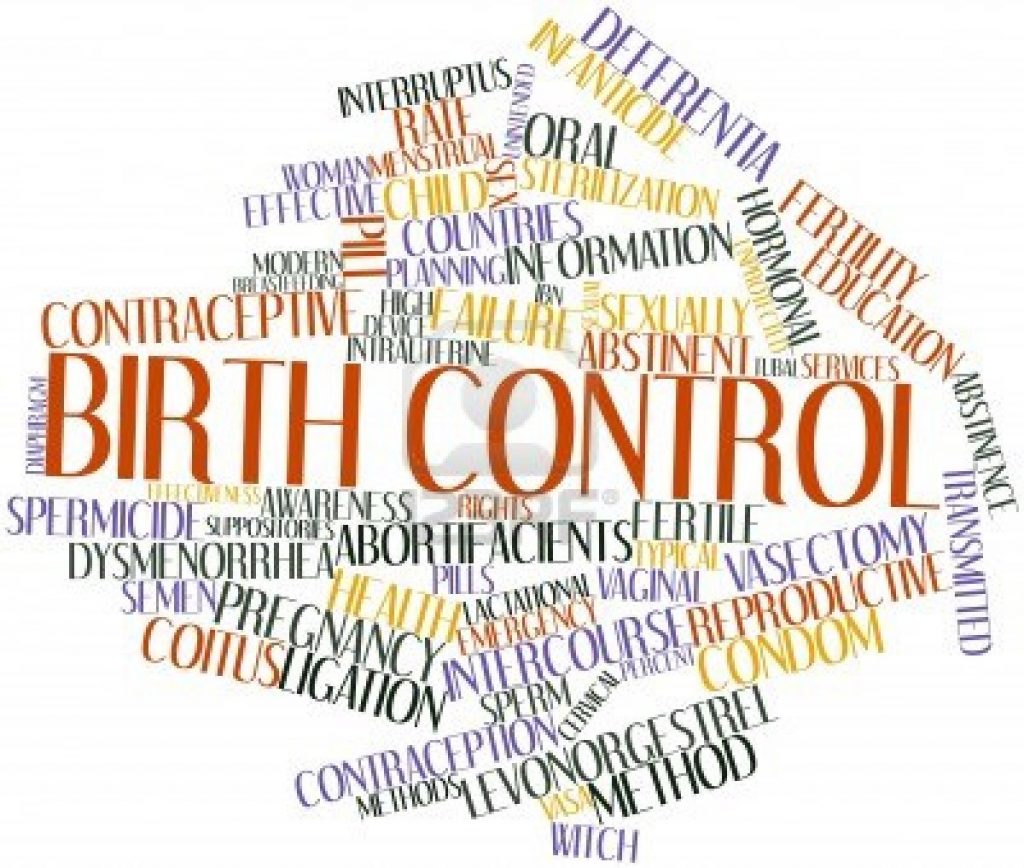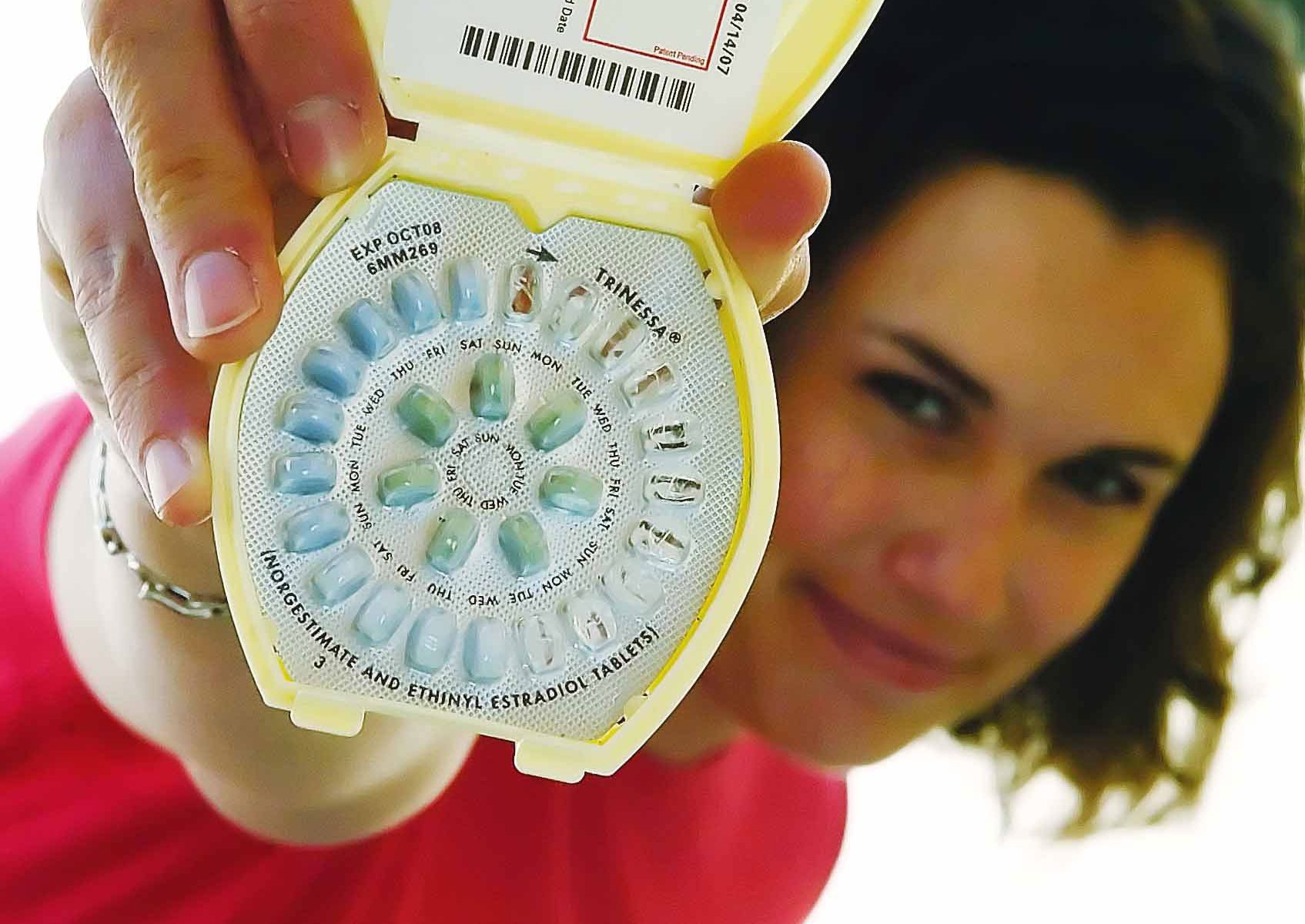Birth control is a contentious issue, and one which seems to be open to interpretation. However, there are several forms of birth control which directly violate other commands of the Bible, specifically the sixth commandment, “Thou shalt not kill.”
We believe that human life is sacred, and that all humans are created in the image of God. This begins with life, that is, at conception. The Bible clearly confirms this by underlining the value of our lives before birth (e.g. Isaiah 46:3-5, Jeremiah 1:5, Psalm 119:73, Psalm 139:13-14, etc.), even tracing them back to the moment of conception on multiple occasions (e.g. Genesis 4:1, Ruth 4:13, Psalm 51:5, Song of Solomon 3:4, etc.) Therefore, anything that destroys this human life is a direct violation of the sixth commandment.
There are many different types of contraception (“birth control”) available today. There are some we dismiss outright as being morally wrong—abortion (which destroys a baby that has implanted into his/her mother’s womb) and intra-uterine devices (which prevents an embryo from implanting into the womb). What many people are not aware of is that all hormonal contraception (e.g. “the pill”) may work by preventing implantation as well.
Most of us wouldn’t think of taking the morning-after pill, but this is the same combination of medications that is found in birth control pills and uses the exact same three ways of action to prevent pregnancy that the pill does. In fact, in many cases, the morning after pill is literally punched out of a birth control pill package and dispensed in a vial with different directions, but it remains the same medication women all over the world use to prevent pregnancy on a month-to-month basis, albeit at a higher dose.

Most hormonal contraceptives contain the two female hormones estrogen and progestin in various forms and combinations. Some contain only progestin (mini pills) and are often prescribed to women who are breastfeeding or experiencing difficulties with side-effects of the estrogen component of most other hormonal contraceptives. Regardless of which type and brand of hormonal contraception used, all prevent pregnancy by the same three ways, which can be viewed as a series of hurdles that one must pass in order to become pregnant. In more detail, hormonal contraception:
1. Prevents ovulation from occurring so no egg can be fertilized;
2. Prevents conception by thickening the cervical mucus to prevent sperm from reaching the egg in case ovulation does take place;
3. Thins the lining of the uterus so that a newly conceived human embryo (often referred to as a “fertilized egg”) will be unable to implant.
Thus, if ovulation occurs, chances are the sperm will not be available to fertilize the egg, but if fertilization occurs, the embryo will not survive because the uterine environment cannot sustain the pregnancy. While the first mechanism of action is the predominant means by which hormonal contraception works and the one that we are most familiar with, the other two are important mechanisms for preventing pregnancy. The prevention of ovulation and sperm passage is contraceptive—that is, it prevents the act of conceiving, the fertilization of an egg—so that a human life is not formed. But it is this third mechanism of action that acts in an intraceptive, life-interrupting way.
How is this possible? Ovulation can take place while using hormonal contraception. Any time ovulation takes place there is the possibility of conception, and pregnancy. We know birth control pills “fail” (a women gets pregnant while taking them) at a rate of 3 out of every 100 women per year. Some of these pregnancies are due to “human error”, that is, not taking the pill exactly as prescribed, for example, by missing a dose, taking the pill late, or taking other medications or herbal products that interfere with the pill. However, in women taking the pill perfectly, pregnancy can still happen. This means that all three mechanisms of action for the pill failed… the baby passed all the hurdles!
What is unknown is how often do the first two mechanisms fail and it is the last mechanism, the prevention of implantation that is responsible for the prevention of pregnancy? How then can pro-life women in good conscience be taking a medication to prevent pregnancy that can also terminate life?
While science clearly proves that human life begins at fertilization, some medical textbooks argue that human life begins at implantation, and many health care professionals do not view human life as innately sacred. This vast difference in world view and definition of life has profound effects and often leads to the provision of confusing and misleading information from most health care professionals when members of our community ask about birth control methods.
For example, if a woman asks whether the birth control pill can terminate life, and the doctor believes human life does not begin until implantation, his/her answer will be no, putting the woman’s mind at ease with misinformation. Yet others, knowing that fertilization is the starting point of each of our lives, do not consider this life to be valuable yet, and also inform patients that the pill can do no harm. It is therefore incredibly important that we are aware of this information.
Finally, if you have been using birth control pills or other forms of hormonal contraception, prayerfully consider other methods that are known not to disrupt life. Children are always a blessing from the Lord, but there may be times when pregnancy is to be avoided. There are other means of avoiding pregnancy that are as effective as hormonal contraception, perhaps without the convenience factor, but also without the fear of unknowingly losing a child.
Hormonal contraception can be used to treat or control a variety of medical conditions. As with any medication, please discuss this with your physician prior to making any changes if you are considering discontinuing your hormonal contraception. Consider that taking this, while being sexually intimate with your spouse, can put the lives of your pre-born children at risk. Above all, while making well-informed decisions that are consistent with Biblical, pro-life views, pray for guidance to do so in a way that glorifies God.
Michelle Van Maanen, BSP, Accredited Canadian Pharmacy Resident (ACPR)
Danielle Van Maanen, BScN, Registered Nurse (RN)
For further information, see also:
Birth Control Pill: Abortifacient and Contraceptive by the American Association of Pro-Life Obstetricians and Gynecologists
Does the Birth Control Pill Cause Abortions? by Randy Alcorn
The Pill—How it Works and Fails by Pharmacists for Life International
Things your Doctor May not Have Told You about Your Birth Control by My Feminine Mind


For those who may be skeptical about the above claims, here is the actual FDA-approved text from a birth control pill package insert confirming the abortifacient effect:
“Although the primary mechanism of this action is inhibition of ovulation, other alterations include changes in the cervical mucus (which increase the difficulty of sperm entry into the uterus) and the endometrium (which reduce the likelihood of implantation).” – p. 2
http://www.accessdata.fda.gov/drugsatfda_docs/label/2005/021690lbl.pdf
Here I’m speaking as a fellow pro-lifer. I just thought of a counterargument that I thought I would raise to hear how you might respond. It seems to me pro-life advocates could argue that the failure in step 3 alone would not constitute an abortion, since it’s not the intended result of taking hormonal contraceptives. In other words, couldn’t a person argue that this is analogous to situations where induction of labor is required to save the mother’s life? I’m thinking of situations where this knowingly will result in the death of the premature infant. Pro-lifers argue that this doesn’t constitute an abortion because the intention of the action is not the killing of the infant but the medical solution that saves the mother. What are your thoughts?
Greg…
Absolutely not!!! If you are knowingly taking the pill with the risk factor that it may possibly include the possible taking of an innocent life, that, to my mind is no different than carelessly drinking to excess and driving!! You might accidently kill someone without meaning to.
Hi Greg,
I’m glad you’re thinking about this from the other perspective – it’s important to do, and it’s a good question.
In considering the mom versus child, the decision being weighed is actually one which respects life in both cases. It’s likely it would be more of a ‘save the mom or save neither’ decision since the baby doesn’t survive a pregnancy without its mom.
In the case of birth control, you’re weighing the decision of ‘no-hassle sex planning’ versus the potential risk of this third abortive mechanism of the pill. It’s also not even a decision of ‘pregnancy versus birth control pill’ as there are a number of other God-honouring options out there. He didn’t make woman fertile 100% of the time for a reason I am sure!
Since you used the word ‘intention’ I also don’t want to miss this part of the argument. In the mom versus child scenario I would argue the intention is to save lives – as many as possible. For the pill, the intention is to prevent a woman from getting pregnant. And actually the third mechanism meets this intention. Unfortunately you can’t take the pill intending to only use the first mechanism to prevent conception. You have to accept all three mechanisms as this article puts it. I would also rephrase and say that the final intention of birth control should be to prevent pregnancy without compromising the lives of others. You don’t save the life of the mother when you take the birth control pill, you merely ‘save’ her from being pregnant. But you do potentially save the life of your baby if you don’t take it. I think it makes the pro-life decision an easy one?